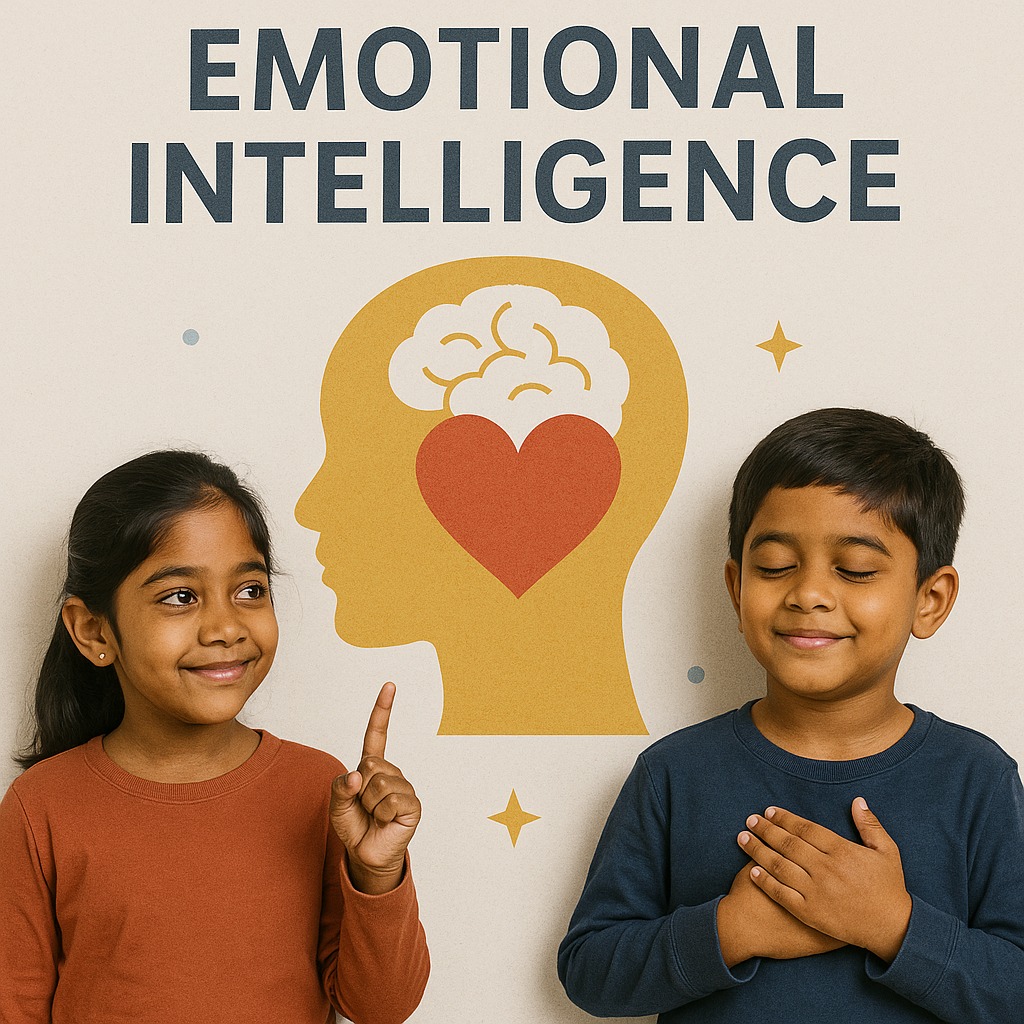Picture this: it’s family game night. Your six-year-old has just watched their carefully climbed token slide down a giant snake on the Snakes-and-Ladders board—and the tears start welling up. The problem isn’t the game itself; it’s the surge of frustration they haven’t yet learned to name and manage. Coaching children to recognise and regulate those feelings is what psychologists call emotional intelligence, and it quietly outperforms flash-card drills when it comes to long-term success.
Why EI deserves a place on every parent’s to-do list
Grades and focus go up. A 2024 study tracking 444 primary-schoolers found that children who scored high on EI also posted significantly better marks—even after researchers adjusted for motivation and study habits.
Academic gains last. A global meta-analysis covering 575,000 students showed that well-designed social-emotional learning (SEL) programmes boost achievement as much as purely academic interventions, and the edge persists for years.
Self-regulation gets easier. Brief mindfulness practices—think three slow breaths before homework—have been linked to stronger attention spans and calmer behaviour in classrooms.
Bottom line, when families and schools invest in EI, they’re future-proofing children in ways algebra worksheets alone can’t match.
Six everyday habits that build empathy and resilience
- “Name it to tame it.” During dinner, invite everyone to share one high-emotion moment and label the feeling—proud, frustrated, curious. Children who grow up hearing a rich vocabulary of emotions show stronger empathy and self-control later on.
- Emotion charades. Act out feelings—excited, embarrassed, bored—without words and let your child guess. Reading facial cues in a playful setting trains the same social muscles they’ll need on the playground.
- Story-pause-reflect. While reading a picture book, pause and ask, “How do you think the character feels right now?” Studies show that parent–child discussions during socially themed stories measurably boost prosocial behaviour in preschoolers.
- The Kindness jar. Drop a button in a clear jar each time someone feeds the pet or shares a toy; celebrate when it’s full. Visible, cumulative rewards link helpful deeds with warm emotions and nudge everyday compassion.
- Mini mindful breaths. Before schoolwork or sports, try the classic “smell the flower, blow the candle” breathing pattern together. Even a two-minute reset can reduce anxiety and sharpen focus.
- Weekend empathy adventures. Join a local beach clean-up or visit a retirement home. Real-world service gives children a concrete reason to care—and makes those dinner-table emotion words stick.
Bringing it home
Raising emotionally intelligent children isn’t about grand programmes; it’s about dozens of tiny, intentional choices each day. Pick one habit this week, keep it light and playful, and watch that empathy muscle flex.
If you’d like more research-backed ideas, or want to see how ELC India weaves SEL activities into a broader learning philosophy, feel free to reach out—we’re always happy to chat with fellow parents about early years excellence in action.

